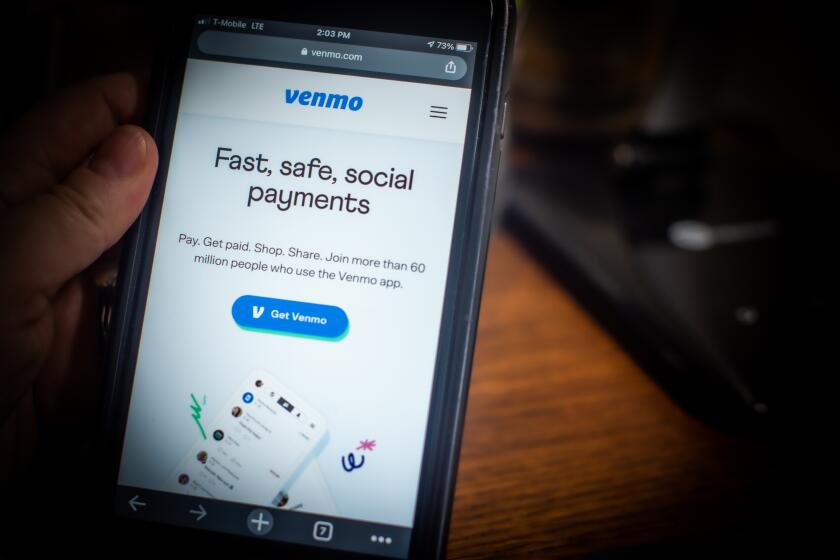An online bank didn’t want this reader’s deposit. Now what?

Dear Liz: I recently tried to open a high-yield, one-year certificate of deposit at an online bank. I already have one CD with this bank, but when I went to submit the form for the new account, I got a message on the screen that the bank had denied my request. I called the bank’s customer service line, but the rep said she could not give me any reasons as to why they denied my application.
I checked my three credit reports and everything is in order. The only thing I can think of was that I recently had a balance on one credit card that went slightly over 30% of my credit availability, but I paid that off in full. I did some research online and another reason might be that withdrawals from other bank accounts are appearing on my credit report. I have made some regular withdrawals recently from one of my money market accounts.
Why would a bank deny a customer giving them a large amount of money, so they could loan it out at the higher interest rates and make money? If I knew the reason for the denial, I could fix it. Is there a federal banking rights organization where I can dispute this denial?
Answer: You can file a complaint with the Consumer Financial Protection Bureau, which promises to work with your bank to resolve your issue. You also could file a complaint with the bank’s regulator, but there’s no guarantee you’ll get a response.
The denial probably wasn’t due to the information in your credit reports. A bank may check your credit before allowing you to open a new account, but you wouldn’t be denied because you used more than 30% of your credit limit. Bank transactions typically aren’t recorded in your credit reports, so that wouldn’t be a reason for denial, either.
The bank is required to send you an “adverse action” notice if it used your credit report or another consumer database to deny your application. That notice should explain the reason why, and the database it used.
It’s possible you encountered a technical glitch, or were trying to deposit more than the bank allowed for that account. Another possibility is that there were typos or errors in your online application. Whatever the case, the CFPB complaint should prompt a clearer response from the bank about what happened and what you can do to resolve the problem.
Did someone send you money ‘by accident’ on Venmo, Zelle or Cashapp? Don’t rush to send it back. Here’s what to do.
Dear Liz: If I pay off my credit card and carry a zero balance, will my credit score go up quite a bit?
Answer: That depends, among other factors, on how much of your available credit you were using on that card. The closer you were to being maxed out — which means using most or all of your available credit — the more dramatic the improvement you might see.
But your credit scores also depend on a number of other factors, including how long you’ve had credit, how many open accounts you have, how much of the available credit you’re using on those accounts, when you last applied for credit and whether you have any negative marks, such as late payments, in your credit reports.
In general, credit scores respond favorably if you use only a small portion of your available credit. People trying to obtain top scores generally try to keep their credit usage below 10% of their credit limits.
Economically speaking, the vibes are off. Here’s what you should be doing with your money, according to financial experts.
Dear Liz: Can someone who has remarried claim survivor benefits from a deceased former husband?
Answer: Possibly, if the marriage lasted at least 10 years, the divorce occurred at least two years ago and she remarried at age 60 or later.
Divorced survivor benefits can be up to 100% of the former husband’s benefit. The amount would be reduced if the ex-wife applies before her own full retirement age, which is currently between 66 and 67. (Survivor benefits could be further reduced or even eliminated if the ex-wife receives a pension from a job that didn’t pay into Social Security, under the “government pension offset” rules.) If the ex-wife has earned a Social Security benefit of her own, she would get the larger of the two checks rather than both amounts.
The rules for divorced survivor benefits are different from those for divorced spousal benefits. Divorced spousal benefits may be available while the ex-husband is still alive, but only if the ex-wife hasn’t remarried. Also, divorced spousal benefits max out at 50% of the ex-husband’s benefit.
Liz Weston, Certified Financial Planner, is a personal finance columnist for NerdWallet. Questions may be sent to her at 3940 Laurel Canyon, No. 238, Studio City, CA 91604, or by using the “Contact” form at asklizweston.com.
More to Read
Inside the business of entertainment
The Wide Shot brings you news, analysis and insights on everything from streaming wars to production — and what it all means for the future.
You may occasionally receive promotional content from the Los Angeles Times.












